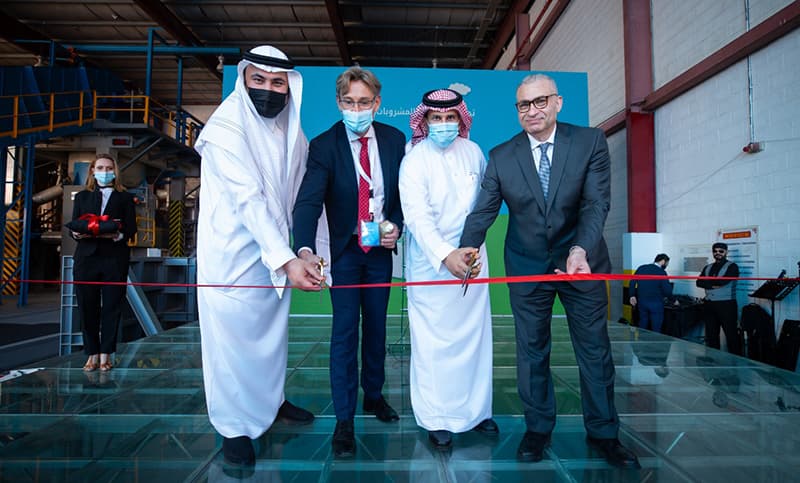Tetra Pak, the world’s leading food packaging and processing company, has launched a solution to recycle cartons investing in advanced recycling equipment. The first such initiative in the Arab region, Tetra Pak has joined hands with Obeikan Paper Industries (OPI) and Al-Qimmah Plastic Factory to fulfill the aim of the National Center for Waste Management, keeping in line with the Saudi Vision 2030.
With world population expected to reach 9.1 billion by 2050, an increase of more than a third of the world’s population today, food production is expected to increase by 70% to meet global demand. Packaging plays an important role in maintaining food safety and availability for the world’s growing population. Tetra Pak aims to increase use of recycled materials in its packaging processes in a way that contributes to the transition to renewable and recyclable sources, while reducing the use of materials that depend on fossil fuels.
The Swedish-Swiss multinational also aims to provide basic food packaging that ensures food safety and availability while reducing the environmental impact on our planet. As part of its manufacturing and production strategy, Tetra Pak continues to work in the Arab region to reduce the impact of packaging on the environment by applying suitable processes. Last year alone, Tetra Pak recycled 49 billion packages globally, an event that inspired the Arab region.
Acting CEO of the National Center for Waste Management, Dr. Abdullah bin Faisal Al-Sebaei, speaks about the initiative, “Due to the acceleration of the industrialization movement in the Kingdom, and the high growth in population numbers that led to an increase in the level of waste production, we are now focusing more on sustainability in all its economic, environmental, and social pillars by adopting solutions-integrated waste management and its priority represented in reducing waste production and landfills, reusing and recycling it as a regulator of the sector, in line with the sustainability goals of the Kingdom’s Vision 2030. In this light we see this partnership between Tetra Pak, Obeikan Paper Industries, and Al-Qimmah Plastic Factory as a significant step in achieving our national sustainability goals.”
Nils Hoggard, General Manager of Tetra Pak Arab Area, adds, “In Saudi Arabia, we have entered into a first-of-its-kind recycling partnership with Obeikan Paper Industries and Al-Qimmah Plastic Factory, to recycle used cartons. Obeikan Paper Industries has its own waste management and is ready to begin work on increasing the collection and contributing to a sustainable recycling value chain. We expect to recycle about 8000 tons of waste each year, with a potential to increase this capacity. In addition, we have established a partnership with Al-Qimmah Plastic Factory, the leading plastic recycling plant in the region, to recycle plastic and aluminium from recycled packaging waste in Obeikan. Al-Qimmah Plastic Factory has 15 years of experience, and has a recycling capacity of 50,000 tons of plastic annually. These developments come to ensure that their packaging is fully managed.”
Decarbonization and environmental cooperation are critical to the sustainable transformation of the food packaging industry. Having successfully launched global initiatives towards sustainability and recycling with more than 170 recycling companies around the world, Tetra Pak has recently announced its commencement of recycling operations in the United Arab Emirates.
